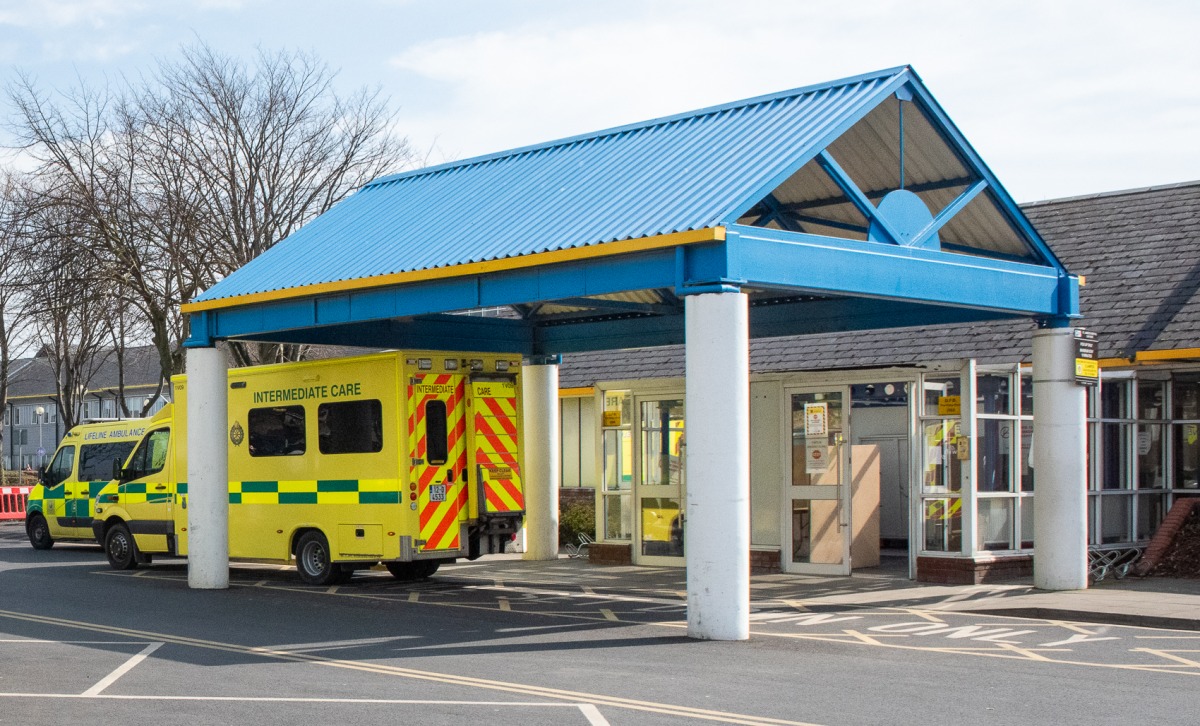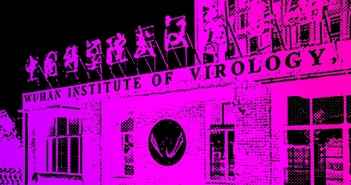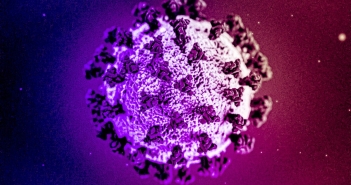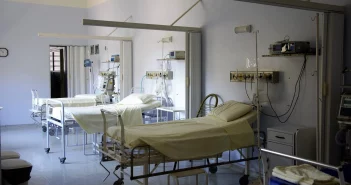As an immediate disclaimer, I am a doctor training to be a general practitioner in Ireland and am a member of the Royal College of Physicians of Ireland. I have worked in the local hospital emergency department and Covid assessment hubs as well as a general practice surgery during the pandemic and have seen very unwell patients suffering with Covid-19 and the after-effects of same. I have friends who have lost parents and grandparents and understand the devastating effect that the virus has had on their lives. I absolutely do not underestimate the seriousness of this disease. I am fully vaccinated and recommend that patients are vaccinated should they so wish. I am vehemently against the concept of vaccine mandating and passports. I fully support the right to protest and detest the concept of censorship by large technology companies. I feel that in the current climate of extreme opinions on this topic, I must state all the above. I have no expertise in infectious diseases, public health or epidemiology. Like most doctors, regardless of whether they choose to admit it or not, my understanding of statistics is limited. Hence, I do not offer any opinion in this regard.
The Doctor in Society
The Covid-19 pandemic has been an ever-present part of our daily lives for over a year. There is little left to say that has not already been said in relation to the correct management of the virus on a national and international level. It appears – from the approaches of different countries around the globe – that it is impossible to reach anything approaching universal agreement on the best manner of protecting vulnerable people from the disease, while simultaneously protecting vulnerable people who also have suffered terribly because of the restrictive measures that governments have felt it necessary to enact in our societies. Hence, the purpose of this essay is not to provide an opinion as to the approaches adopted, but to discuss and examine some ethical considerations and the implications of our decisions.
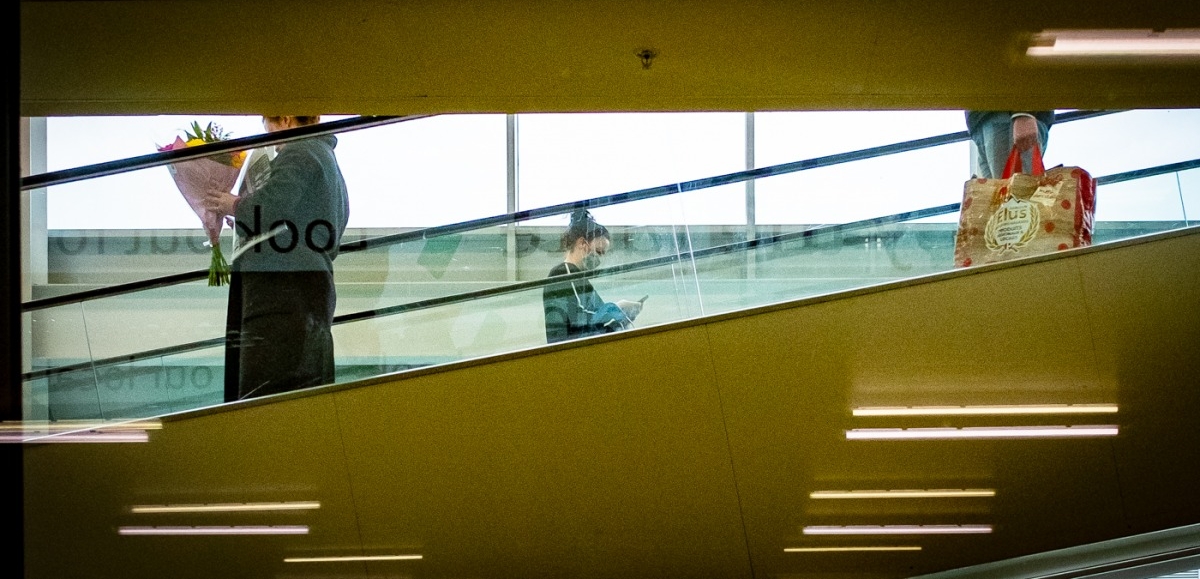
We should first consider the role of a doctor in society. John Berger wrote in A Fortunate Man, a seminal book on the life and work of a dedicated general practitioner in rural England, that ‘like an artist, or like anybody else who believes that his work justifies his life, Sassall – by our society’s miserable standards – is a fortunate man.’[i]
Certainly, as a vocation, medicine is endlessly interesting and the care of people when they are unwell is incredibly rewarding, despite its demands. There is an intimacy between a doctor and his patient that is intangible and key to a successful therapeutic relationship. We occupy a privileged position in people’s lives as we often meet them when they are at their most vulnerable and most in need of help.
Note the deliberate use of help as opposed to treatment. I use this word purposely because treatment in the general sense is not always appropriate when trying to improve a patient’s condition. Berger continues that a good doctor can be recognised as someone who ‘meets the deep but unformulated expectation of the sick for a sense of fraternity. He recognises them’. You’ll notice that the recognition does not include intelligence, curiosity or diligence, although these are all welcome attributes.
Ethical Pillars
Another important aspect of being a decent doctor in the true sense of the word is to regularly consider the four ethical pillars of medical practice. These are autonomy, justice, beneficence and non-maleficence. Acknowledging and adhering to these principles allows us to help and treat patients in a humane manner and should allow doctors to recognise the limits of our ability to protect people. This is an important point to emphasise. As physicians, we often see ourselves as lifesavers or life-preservers, but this is often not the case and creates unrealistic expectations for both the doctor and patient.
Our primary function is to prevent unnecessary suffering and death where possible and to try to consider the effects of our treatments not just on the patient, but on the patient’s family and wider community. Beyond the above, we are capable of little else, which is in of itself, no mean feat.
A significant risk in the practice of medicine is that in the search for ‘progress’, our hubris means that we are trying to cheat death on behalf of the patient with ever-increasing numbers of interventions, with often dubious effects on patients’ quality and quantity of life.
This is often apparent in the field of oncology. For example, a recent paper published in JAMA in November 2020 examined the clinical trial data available on treatment outcomes of all novel cancer drugs approved for the first time between 2000 and 2016.[ii] 92 novel cancer drugs were approved by the FDA for 100 indications based on data from 127 clinical trials. Despite the enormous cost of both developing and treating patients with these drugs, the median absolute survival benefit was 2.4 months.
This requires emphasis. 2.4 MONTHS of median survival.
This is simply staggering and reflects that we may have lost our way in the medical community, approving medications for use without fully appreciating the implications of this decision i.e., if this person receives x drug at x cost, what effect will this have on the healthcare system as a whole? Does treating patients in this manner, with often experimental medications, benefit society as a whole or the pharmaceutical industry? This may require a ‘hard heart’ as described by Jim Stockdale in Thoughts of a Philosophical Fighter Pilot. The correct decision for the many is often the hardest on the few.
Progress in Medical Science
It goes without saying that it is essential to strive for progress in science and medicine. This should not require stating as I am in awe of the advances made every day in medical science. It is, however, equally essential to recognise the fundamentals of health and the requirements for same. The UN defines health as not just the absence of disease, it is a state of complete physical, mental and social well-being. Can we say, as doctors, whose role it is to help restore and maintain health, that any of our patients are healthy in the context of the events of past year? Are we striving to help our patients to be healthy or are we only treating their diseases as they develop? There is a subtle but significant difference.
Ivan Illich, the philosopher, wrote extensively about the effects, both good and bad of doctors and medicine on not just the individual but on society in general.[iii]3 He recognised the amazing large-scale innovations in public health that have given us access to good food, safe water, sewage disposal etc, but he also recognised the potential for medicine and the medical profession to cause significant harm. The focus of his arguments relate to the adverse impact of medicine on society. His principal argument being that the medical profession was eroding the individual’s capacity to accept suffering and more importantly, the capacity to die one’s own death.
As previously mentioned, our duty is to ameliorate suffering where possible and allow patients to suffer and die with dignity when this is appropriate. Our attempts to do more has the potential to lead to catastrophe, both physically and psychologically, because it can permanently remove a patient’s perception of control over their own being. Prominent examples include the current opioid epidemic in the US and benzodiazepine addiction issues here in Ireland. All developed under the guise of attempting to alleviate suffering, but instead mutating to continue to cause devastation to this day.
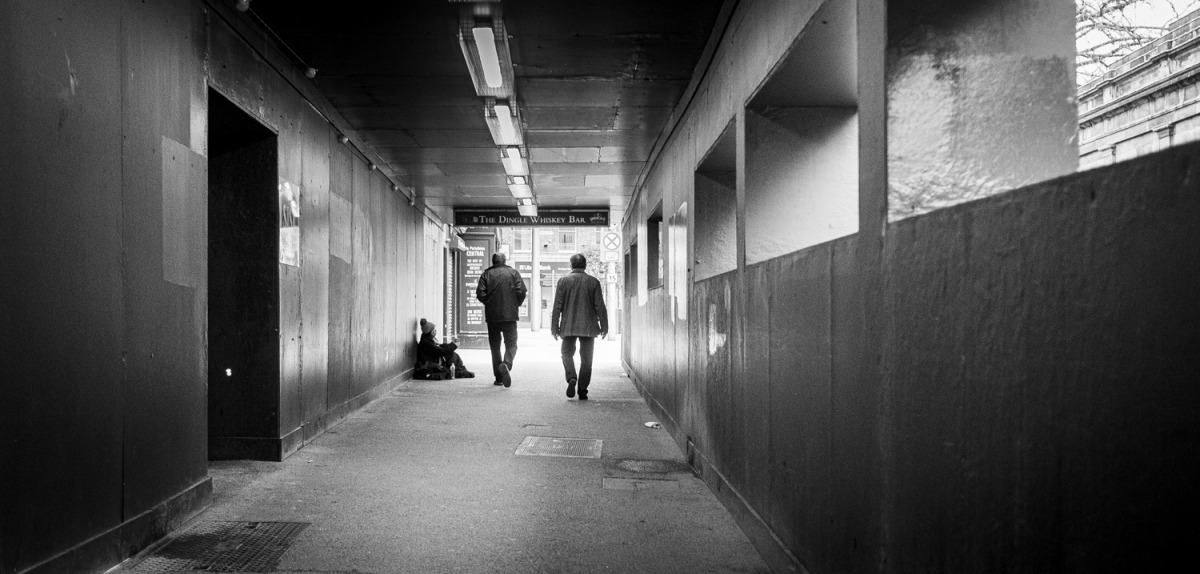
Overdose deaths involving opioids, including prescription opioids, heroin, and synthetic opioids (like fentanyl), have increased over six times since 1999.[iv] Most of these deaths are attributable, unintentionally or not, to the medical profession. This is a sad reality. Simply because a treatment decision is well-intentioned does not protect the doctor or the patient from unintended circumstances.
Hence, I would advocate where at all possible, conservative or ‘light touch’ medicine, promoting patient empowerment and autonomy. Where possible, I suggest promoting the ideal of health provided by William Landen: ‘To ensure good health; eat lightly, breathe deeply, live moderately, cultivate cheerfulness and maintain an interest in life’.
Latter-day Clergy
Physicians should be an occasional addendum to life; instead, we have increasingly assumed the role previously held by the clergy. This is not a positive development. Although the medical profession has not asked for this endowment, it has accepted it without significant resistance or understanding of the spiritual nature of the role. Many physicians are not consciously aware of the transference, creating further patient dependence and maladaptive behaviour patterns, creating the class of people known to doctors as ‘heart-sink’ patients. Medicalisation of existential angst manifesting as vague abdominal pain serves neither the doctor, the patient, nor society in general.
Public health is an extension of medicine that is remarkably important but often ignored at a societal level. It has been defined simply as the science and art of preventing disease and is tasked with the promotion and protection of the health of entire populations. This is a gargantuan task and is arguably much more important than the other, more visible fields of medicine. While the aims of public health medicine are admirable, it would be easy to deduce that multiple aspects of modern public health, beyond the basics mentioned previously, had been failing miserably up to the onset of the pandemic.
Levels of both child and adult obesity as well as type 2 diabetes are increasing year on year, chronic disease continues to over-burden every western healthcare system and smoking rates remain stubbornly high globally. All these issues, created by the cultures of excess and consumption that we inhabit, are likely to worsen in the years ahead, with multiplicative effects on successive generations in Ireland to the point where it is expected that our life expectancy and more importantly, healthspan, will decrease in the years ahead.[v]
I mention this to illustrate the point that people rarely behave in a rational manner. This is especially evident at a population level. Therefore, one could logically decide in a public health capacity, to intervene in increasingly intrusive ways to ultimately improve the health of the population, through restriction of access to unhealthy pastimes and products. This would presumably entail banning cigarettes, alcohol, highly processed junk food and all other manners of potentially unhealthy choices. This would reduce the burden on our hospitals in both the short and long-term and allow improved access to care for a happier, healthier population.
For example, the government of Bhutan has banned all sales of cigarettes in their country, with excellent health effects to date. The Prime Minister of Bhutan took the decision because he stated that it was the right thing to do for the health of the country’s citizens.[vi]
However, it would be argued vociferously that any such decrees would impinge on an individual’s rights to individual choice, not to mention the enormous loss in tax revenue to the State from the sale of such items. The Irish government is estimated to generate two billion euro a year in tax revenue from the sale of cigarettes alone. Interestingly, it is estimated that we spend the same amount on the management of smoking-related diseases in our healthcare system, thus negating this as an argument against banning cigarettes.
 If this were indeed implemented in Ireland, and more particularly in the case of alcohol, there would be immediate cries of excessive intervention in the private lives of the citizens of the State. This would be a perfectly reasonable argument in the absence of a state of emergency, such as we find ourselves in over the course of the past fifteen months.
If this were indeed implemented in Ireland, and more particularly in the case of alcohol, there would be immediate cries of excessive intervention in the private lives of the citizens of the State. This would be a perfectly reasonable argument in the absence of a state of emergency, such as we find ourselves in over the course of the past fifteen months.
It must be stated that the effects of cigarettes and alcohol are not limited to the individual. Anyone who argues this has not had to wait for an outpatient appointment in an overcrowded cardiology or respiratory clinic for three years. One should remember though, that there has been a healthcare and trolley ‘emergency’ in Ireland since Mary Harney announced one twenty years ago and there has been no improvement whatsoever in the annual crisis figures, with increasing amounts of the State budget allocated to the attempted provision of healthcare. In 2018, the Irish state spent €22.5 billion on the healthcare system, which equates to 11.4% of Gross National Income (GNI).[vii] People blame the healthcare system but the system, while dysfunctional, may not truly be to blame. Perhaps, as a society, should we shoulder some of the responsibility?
State Interventions in Pandemics
Thus, after thinking about some of the arguments that could be made for state intervention in the lives of its citizens, I think it is important to consider the various ethical approaches that could underpin our ongoing approach to the pandemic.
A utilitarian approach was initially adopted by the UK government, aiming for the concept of achieving herd immunity to maximise the collective interest. As is commonly known, this was quickly abandoned as the healthcare system came under increasing strain. This approach is not without precedent, and I do not refer to the management plan decided upon by the Swedish government.
In 1968, the world was struck by an influenza pandemic known as the ‘Hong Kong flu’, killing approximately 4 million people globally, according to the Encyclopaedia Britannica. A paper published in The Lancet examined the response to the 1968 pandemic and noted that the British government was extremely passive in its approach.[viii]
Fearing that the press would have a field day if it issued a prominent warning about the pandemic, it left it to local medical officers of health to decide on the most appropriate course of action. Interestingly, publishers were also reluctant to risk stoking public fears, ‘a reflection perhaps of heightened anxieties due to the Cold War and the launch of Sputnik, as well as greater respect for medical experts and deference to authority’. This approach undoubtedly led to many deaths and interestingly, affected people under the age of 65 more than the elderly.
It can certainly be argued that the fabric of British society was maintained at the time, possibly for the greater good in terms of long-term ramifications. Contrast this with the media response to the pandemic today. The Guardian newspaper is one of many which has a live ‘coronavirus update’ section on its website for the past year. Does the information provided serve the individual or the advertisers paying for space?
 Ireland’s Kantian Approach
Ireland’s Kantian Approach
By way of comparison, Ireland seems to have adopted a Kantian approach to the management of the pandemic. It is unclear whether this is by accident or by design. In an interesting paper by Gerard Delanty, he quotes the philosopher Jurgen Habernass, the world’s leading political philosopher.[ix]11 He stated that ‘the efforts of the State to save every single human life must have absolute priority over a utilitarian offsetting of the undesirable economic costs’. This equates to, in layman’s terms, ‘lockdown first, ask human rights questions later.’
While Kantian ideals are superficially attractive, I worry that the implications of following such an approach will have long-term repercussions. One can argue that that the degree of government overreach into the lives of its citizens is deontologically unacceptable and that multiple human rights violations have occurred in this country and may occur again in the near future.
A report commissioned by the Irish Human Rights and Equality Commission in 2020 stated that ‘not only is Covid-19 more than a public health crisis, but it is also arguably the most significant set of human rights and equality challenges that Ireland has ever faced’[x]12 The report highlights multiple areas of concern regarding the State’s and NPHET’s issuing and maintenance of emergency powers. Principally, these included the blurring of the boundaries between legal requirements and public health guidance, the potential for emergency measures and their enforcement to disproportionately affect certain disadvantaged and more vulnerable groups and the lack of human rights and equality expertise in the decision-making structure put in place to tackle the pandemic, or in the systems that implement and scrutinise these decisions.
These are significant issues that have not been acknowledged or addressed by the Government or NPHET. This should be of significant concern as it belies the seriousness of the situation. I must stress that I do not suggest that NPHET or the government are made up of morally ambiguous people. They are not the real issue. I honestly believe that they are decent people working hard in the most extraordinary circumstances that we have witnessed in most of our lifetimes. It is in this ‘state of exception’ however, that we must be at our most fierce in the assiduous monitoring and protection of our civil liberties.
 Overreach?
Overreach?
Giorgio Agamben, the Italian philosopher, has warned repeatedly against the implementation and continuation of emergency powers as a normal paradigm of government.[xi] He questions the imposed limitation of freedom in a desire for perceived safety and security and has previously discussed this issue in his examination of the surveillance powers afforded to the US government after the events of 9/11. He warns against fear and stresses the importance of society guarding itself against any form of extreme government, regardless of perceived benevolence.
Matthew Crawford, the philosopher cum motorcycle mechanic, also warns against the culture of ‘safetyism’, describing a cycle whereby ‘the safer we become, the more intolerable any further risk becomes’ and that ‘once emergency powers are passed, they are seldom relinquished.[xii]’
Do we genuinely believe in Ireland that we are immune to benevolent autocracy? Has the question even been asked in the public domain here? Does the absence of questioning and discussion not demonstrate the lack of any public intellectual discourse that might be useful to allow individuals to consider their own ethical responsibilities in a pandemic?
By corralling people in their homes, the State has acted as a helicopter parent, pacifying us with off-licences and pandemic unemployment payments. The decision was made that people were not trustworthy enough to consider their fellow man and behave accordingly.
Anti-lockdown campaigners have repeatedly pointed to the relative ‘success story’ of Sweden in its approach to the pandemic. Perhaps, it has nothing to do with the manner of the imposition of the restrictions but to do with how seriously the population took the virus and were satisfied to adhere to advice from the public health authorities. There was reciprocal trust between the State and its’ people. Because essentially, that is the difference between the population groups.
I would ask people to ignore the behaviour of the virus and instead to consider how people in different countries behave on an individual basis. In Japan, lockdowns have not occurred as they are deemed illegal. However, anecdotally, they take virus very seriously and take what could be regarded as excessive personal risk avoidance i.e., wearing hazmat suits in airports when travelling (this was witnessed recently in Charles de Gaulle Airport in Paris).
Again, I must re-state that I do not believe that lockdown decisions in Ireland were made with ill-intention. They were made to ostensibly protect the vulnerable in society i.e., the elderly. By and large, despite some nursing home and hospital scandals, this has been effective and a healthcare system, bloated and over-burdened for decades, has avoided a presumed disaster. These are the benefits of the most prolonged and nominally if not practically, the most stringent lockdown measures in Europe.
The Law of Unintended Consequences
However, one should also consider and cite the law of unintended consequences i.e., that the actions of governments always have effects that are not anticipated. Hence, it would be unrealistic to assume that our seventeen months of restrictions will have no harmful side-effects. Unfortunately, the vulnerable in society are still those who have and will suffer the most.
Elderly patients, the focus of our concern, have deconditioned before my eyes over the course of the three lockdowns enacted here and many of my colleagues are reporting similar experiences. Loss of muscle and bone strength has a direct impact on the morbidity and mortality of an elderly population.[xiii]
 Physically active older adults (≥60 years) are at a reduced risk of all-cause and cardiovascular mortality, breast and prostate cancer, fractures, recurrent falls, ADL disability and functional limitation and cognitive decline, dementia, Alzheimer’s disease, and depression. They also experience healthier ageing trajectories, better quality of life and improved cognitive functioning. Inactivity over the past seventeen months will have dreadful ramifications for a significant proportion of the people that we have sought to protect.
Physically active older adults (≥60 years) are at a reduced risk of all-cause and cardiovascular mortality, breast and prostate cancer, fractures, recurrent falls, ADL disability and functional limitation and cognitive decline, dementia, Alzheimer’s disease, and depression. They also experience healthier ageing trajectories, better quality of life and improved cognitive functioning. Inactivity over the past seventeen months will have dreadful ramifications for a significant proportion of the people that we have sought to protect.
They spend their time with their families in a state of anxiety, fearful of becoming unwell but also guilty at the burden placed on their families. Loneliness and social isolation have increased dramatically. This will have multiplicative effects in the years to come as there is a strong body of evidence to demonstrate that cognitive decline and mortality rates are doubled among people who suffer because of isolation and loneliness.[xiv]
The ESRI now predicts that tens of thousands of people will permanently lose their jobs, and that up to 250,000 will remain unemployed at the end of 2021[xv]17. Perhaps many of these jobs would have been lost because of the pandemic and not the restrictions, but the negative societal impact of such job losses on people in lower socioeconomic groups cannot be overstated, further worsening inequality and poverty.
In Ireland, the lockdown has been an inconvenience for the middle class, but I state without hesitation, that the longer this persists, the more devastating the blow will be to the vulnerable in society and the more difficult it will be to recover.
Socioeconomic Status
Socioeconomic status has a much more significant impact on health status than medicine and medical care. To provide a stark example, In England, the gap in life expectancy (LE) at birth between the least and most deprived areas was 9.4 years for males and 7.4 years for females in 2015 to 2017; for healthy life expectancy (HLE) it was 19.1 years and 18.8 years respectively.[xvi] This is in one of the richest countries in the world, with a socialised healthcare system lauded and envied globally. It is essential that we remember this fact if we wish to strive for a decent society. I stress again that lockdowns and continued restrictions will affect the most deprived in our own society and further widen the gap of income inequality.
Finally, the effect of state intervention must be considered on the most vulnerable cohort in society, our children. Lockdowns have been demonstrated to have increased the number of adverse childhood experiences suffered by vulnerable children.[xvii]
 The common argument in favour of lockdowns is that their adverse effects are not multiplicative. I would argue the opposite. The longer these measures remain in place, the larger the long-term effects on children. A study in Oxford demonstrated that children had essentially learned nothing over the course of the pandemic year through Zoom.[xviii]. It is estimated that 100,000 children did not return to school in the UK after the most recent lockdown or were defined as ‘severely absent.’[xix] When will disadvantaged children regain the educational ground that they have lost and what will be the effect of this life on their adult lives?
The common argument in favour of lockdowns is that their adverse effects are not multiplicative. I would argue the opposite. The longer these measures remain in place, the larger the long-term effects on children. A study in Oxford demonstrated that children had essentially learned nothing over the course of the pandemic year through Zoom.[xviii]. It is estimated that 100,000 children did not return to school in the UK after the most recent lockdown or were defined as ‘severely absent.’[xix] When will disadvantaged children regain the educational ground that they have lost and what will be the effect of this life on their adult lives?
The government tells us to stay safe and hold firm, slogans that signify nothing except a lack of imagination. They asked that the citizens of the State protect the health service by adhering to stay at home guidelines, which were enforceable by law. The question must be asked why the State has not applied the same urgency to the trolley and hospital bed crisis, which has been present annually for at least twenty years?
How many poor people have died unnecessarily because of over-crowding or inequitable access to healthcare services? Why was the Cervical check scandal allowed to unfold? Why the Mother and Baby Home scandal? Why are we building a behemoth Children’s Hospital that is arguably not suitable for purpose and will be by its’ finish, the most expensive hospital in the world? Why does this occur while there are 193,600 children living in poverty in Ireland,[xx] considering the wealth that this country currently generates. One should ask is the state truly worried about its citizens or its systems of ‘care’? There is a significant difference.
Viktor Frankl
Finally, we should consider the role of the individual in this pandemic. Victor Frankl, the famous neurologist and founder of logotherapy, wrote about the nature of life and its meaning in the context of his experiences as a prisoner in Auschwitz and his subsequent return to society.
In Man’s Search for Meaning and Yes to Life, he explores the themes of meaning and his own treatment of patients with severe mental illness. In summary, his own severe despair, which often afflicted him, only served to convince him further of its meaning and the importance of finding meaning in life.
This does not necessarily mean happiness as this is a more modern obsession. We have no right to happiness in the modern sense. Life does not expect you to be happy or sad or any other emotional state. Life simply is. Within these confines, which are as limited or limitless as you choose, what you emotionally feel during this period is your interpretation of the experience, nothing more or less.
Tragedy constantly stalks us and will visit at various points during our lives, regardless of external environmental factors. As a result, negative visualisation is a concept that the Stoics advocate. Marcus Aurelius wrote of putting his children to bed at night and imagining them dying. This was not done in a sociopathic sense, but to remind him of the precious time that he had with his children, to value this time and to appreciate that they may be taken from him at any point.
Perhaps, societally, we could improve our lot by engaging in this thought process more often, not to upset us but to improve our appreciation of what we have now and to steel ourselves against the difficulties that we may face in the future. It encourages difficult thinking and bravery. It may often be easier to retreat to the arms of someone/something else to make decisions for you but is this the correct decision? This pandemic is an external, unfair devastation but I believe that our society, as imperfect and flawed as it is, can adjust and limp forward. I trust in people to make the correct decisions for themselves at this point in the pandemic.
 In Summary
In Summary
I repeat my claim to no expertise on the management of a pandemic. As a doctor, I am asked to assess people’s problems, both medical and otherwise on multiple occasions throughout my daily work. While I am required to make my decision with relative confidence where possible, key to being a decent physician is to constantly consider that I may be wrong in my treatment decision and that my differential diagnosis remains broad.
I believe that at this point, ongoing and future mandated restrictions are likely to be more harmful than beneficial to society and that we should carefully consider the course that we plot and what we value in life. Safety should not be valued above all else and iatrogenesis has terrible implications for health. I write this on a day when NPHET has recommended to government that indoor dining should be restricted to people who are fully vaccinated only. Is this what we have become?
All images © Daniele Idini
[i] Berger J. A Fortunate Man: the story of a country doctor. London: RCGP; 2005
[ii] Ladanie A, Schmitt AM, Speich B, et al. Clinical Trial Evidence Supporting US Food and Drug Administration Approval of Novel Cancer Therapies Between 2000 and 2016. JAMA Netw Open. 2020;3(11):e2024406. doi:10.1001/jamanetworkopen.2020.24406
[iii] Illich, I. (1975). Medical nemesis: The expropriation of health. London: Calder & Boyars.
[iv] Wide-ranging online data for epidemiologic research (WONDER). Atlanta, GA: CDC, National Center for Health Statistics; 2020.
[v] Woolf SH, Schoomaker H. Life Expectancy and Mortality Rates in the United States, 1959-2017. JAMA. 2019;322(20):1996–2016. doi:10.1001/jama.2019.16932
[vi] Ugen S Bhutan: the world’s most advanced tobacco control nation? Tobacco Control 2003;12:431-433.
[vii] CSO https://www.cso.ie/en/releasesandpublications/ep/p-syi/statisticalyearbookofireland2020/soc/health/
[viii] Honigsbaum M: Revisiting the 1957 and 1968 influenza pandemics The Lancet 13–19 June 2020 https://www.ncbi.nlm.nih.gov/pmc/articles/PMC7247790/
[ix] Delanty, Gerard (2020) Six political philosophies in search of a virus: critical perspectives on the coronavirus pandemic. Discussion Paper. London School of Economics, London https://www.lse.ac.uk/european-institute/Assets/Documents/LEQS-Discussion-Papers/LEQSPaper156.pdf
[x] Irish Humans Rights and Equality Commission, https://www.ihrec.ie/documents/irelands-emergency-powers-during-the-covid-19-pandemic/
[xi] Stephen Humphreys, Legalizing Lawlessness: On Giorgio Agamben’s State of Exception, European Journal of International Law, Volume 17, Issue 3, 1 June 2006, Pages 677–687, https://academic.oup.com/ejil/article/17/3/677/2756274
[xii] Matthew Crawford, ‘The Hypocrisy of Safetyism’, Unherd, May 15th, 2020, https://unherd.com/2020/05/the-hypocrisy-of-safetyism/
[xiii] Hwang, T., Rabheru, K., Peisah, C., Reichman, W., & Ikeda, M. (2020). Loneliness and social isolation during the COVID-19 pandemic. International Psychogeriatrics, 32(10), 1217-1220. doi:10.1017/S1041610220000988 https://www.ncbi.nlm.nih.gov/pmc/articles/PMC7306546/
[xiv] Hwang, T., Rabheru, K., Peisah, C., Reichman, W., & Ikeda, M. (2020). Loneliness and social isolation during the COVID-19 pandemic. International Psychogeriatrics, 32(10), 1217-1220. doi:10.1017/S1041610220000988
[xv] Quarterly Economic Commentary, Spring, 2021, ESRI, https://www.esri.ie/system/files/publications/QEC2021SPR_0.pdf
[xvi] Office of National Statistics, https://www.ons.gov.uk/peoplepopulationandcommunity/healthandsocialcare/healthinequalities/bulletins/healthstatelifeexpectanciesbyindexofmultipledeprivationimd/2015to2017/
[xvii] Per Engzell, Arun Frey, Mark D. Verhagen Learning loss due to school closures during the COVID-19 pandemic Proceedings of the National Academy of Sciences Apr 2021, 118 (17) e2022376118; DOI: 10.1073/pnas.2022376118 https://www.pnas.org/content/118/17/e2022376118
[xviii] ‘Kids can’t catch up if they don’t show up’ The Centre for Social Justice, https://www.centreforsocialjustice.org.uk/library/kids-cant-catch-up-if-they-dont-show-up?utm_medium=email&utm_source=CampaignMonitor_Editorial&utm_campaign=LNCH%20%2020210628%20%20House%20ads%20%20JO+CID_c144dc407b002e4fa6548baa2389bf59
[xix] Ibid https://www.centreforsocialjustice.org.uk/library/kids-cant-catch-up-if-they-dont-show-up?utm_medium=email&utm_source=CampaignMonitor_Editorial&utm_campaign=LNCH%20%2020210628%20%20House%20ads%20%20JO+CID_c144dc407b002e4fa6548baa2389bf59
[xx] Social Justice Ireland, https://www.socialjustice.ie/content/policy-issues/more-637000-people-are-still-living-poverty-ireland-despite-modest

